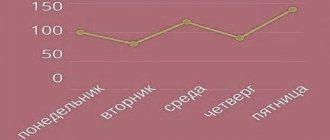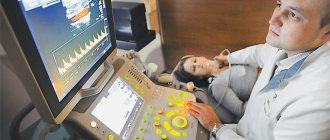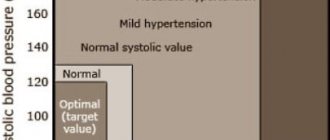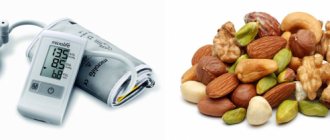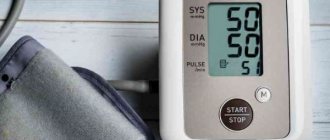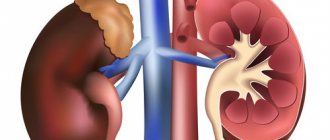Frequent daytime sleepiness is one of the symptoms of many diseases. Among them is arterial hypertension. Experienced hypotensive patients know: as soon as blood pressure drops, lethargy immediately arises and an unbearable desire to sleep occurs.
However, there is also an inverse relationship: lack of sleep affects the condition of blood vessels and blood pressure levels. Let's figure out what the relationship is between insomnia and blood pressure problems.
The effect of sleep on blood pressure
Several years ago, specialists from a hospital in Seoul (South Korea) conducted a large-scale study in which 47,000 people took part. The results were published in the Journal of the American Heart Association. They confirmed some of the assumptions of cardiologists and alerted many patients with insomnia.
During the Seoul study, subjects were asked about the quality and duration of their nightly sleep. Everyone had their blood pressure measured and their blood taken for analysis. It turned out that people who sleep less than 7 hours a day are more likely to suffer from arterial hypertension. Inadequate night rest leads to a decrease in the elasticity of the walls of blood vessels and metabolic disorders. In people suffering from insomnia, calcium is deposited more heavily on the walls of the arteries. This leads to their gradual narrowing and increased blood pressure.
Circadian rhythms of blood pressure
Blood pressure is one of the most important indicators of the state of the cardiovascular system and, along with other physiological parameters, constantly changes against the background of a person’s daily life and sleep.
When studying the daily level of blood pressure, it turned out that fluctuations in blood pressure even in healthy individuals aged 20-60 years can be at least 20% of its average value, reaching 20-30 mmHg during the daytime, and 10-20 mmHg at night, and Exceeding these levels in arterial hypertension is associated with target organ damage.
As is known, the rhythm of physiological processes is one of the fundamental properties of living matter (cells, tissues, organs), which appeared as a result of the evolution of adaptation of life forms to the environment. The unique mechanisms of the rhythm of biological processes (including fluctuations in blood pressure) in people are inherited and controlled by the work of the so-called. "biological clock".
One of the main components of daily fluctuations in blood pressure is the daily or circadian rhythm. And since most people adhere to a fairly regular routine of the “activity-rest” cycle, the occurrence of peaks and valleys in their circadian rhythm during the day is very natural and predictable. Therefore, this blood pressure rhythm is often represented by a biphasic pattern with the highest blood pressure values during the daytime and a distinct nighttime decrease during sleep. During the day, it is often possible to identify two pronounced peaks of increased pressure: morning (9-10 o'clock) and evening (about 19 o'clock). The lowest pressure figures are usually observed in the range from 0 to 4 hours, after which a gradual increase in its level is observed before waking up from 5-6 o'clock in the morning and reaching more stable daytime values by 10-11 o'clock. Nighttime blood pressure fluctuations are closely related to different stages of sleep. Thus, a decrease in pressure around 3 a.m. is associated with the deep phase of sleep, which accounts for 75-80% of its total time and predominates in the first half of the night period. In the second half of the night, superficial sleep predominates, which is combined with short-term moments of awakening. The increase in pressure during this period is 5% of the average pressure. A pronounced increase in pressure in the period from 4 to 10-11 hours from the minimum night values to the daytime level is also observed in healthy individuals, but its high values are characteristic of arterial hypertension. This period is characterized by the physiological activity of the sympathetic nervous system, which is responsible for vasoconstriction and an increase in heart rate. The morning period is also the only time during the day when an increase in blood clotting is observed. In this regard, morning values of cardiovascular system indicators are the most dangerous in relation to heart attacks and strokes.
Irregular pressure fluctuations during the day are random in nature, aimed at maintaining blood flow in the tissues at a sufficient level. Such changes can be noted as a result of the influence of various external factors: environmental conditions, body position, food composition, nature of physical activity, consumption of alcohol, table salt, caffeine-containing drinks (tea, coffee), smoking and individual characteristics of the body (age, gender, heredity, personality type, mood, etc.).
It has been established that the process of continuous repeated measurement of pressure during the day is more prognostically significant and informative than one-, two- or three-time measurement of pressure by the patient independently or at a doctor’s appointment. After all, clinical (real) blood pressure is the average value, most often from three or four consecutive determinations over short periods of time, and such one-time pressure measurements constitute a minimal part of all values of this indicator, making it almost impossible to get a complete picture of the daily blood pressure rhythms . In addition, pressure measurements by the patient or doctor themselves can be distorted by different levels of amplitude of sound vibrations of the human ear, too rapid release of air from the cuff, the habit of rounding results, fatigue of medical staff at the end of the day, the patient’s anxious reaction to the very stay in a medical facility and the measurement procedure ( the so-called “white coat effect”).
A more accurate assessment of the individual pressure level occurs when using methods of daily monitoring (measurement) of pressure. The main device for making such measurements is currently a Holter monitoring . Pressure readings are measured here on an automatic programmable recorder for 24, 12 hours or any other time period at the discretion of the doctor and patient. During the study, a special shoulder cuff with a microphone is installed at the level of the lower third of the shoulder, 2 cm above the pulsation zone of the brachial artery. The outlet tube is thrown over the shoulder, cervical-collar area and fixed on the opposite side of the body on the patient’s belt to the recorder. Wearing the device throughout the day does not pose any particular inconvenience to the patient, but requires recording the daily routine in a special diary (sleep, rest, taking medications, physical activity, pain and other symptoms of increased blood pressure). After 24 hours, the recorder is removed. The verdict on daily blood pressure rhythms is made by the doctor at the functional diagnostics office based on blood pressure measurements at certain time intervals and comparison of the figures with the patient’s diary. A device for daily blood pressure measurement has been operating in the Stolbtsy Central District Hospital since 2009. A referral for this procedure is issued by a general practitioner (usually a cardiologist at a clinic). The introduction of this diagnostic study in the Central District Hospital made it possible to identify real pressure levels in patients, especially at night, differences in pressure numbers that are difficult to identify with a conventional single measurement, assess the effectiveness of medications and achieve target (necessary) pressure levels in people even with previously uncontrolled changes pressure. The question remains relevant about the desire of patients themselves to identify their individual pressure levels, because until now this remains the desire only of the treating doctor.
Cardiologist I.L. Lutik
Why do we get sick
Many common diseases today - obesity, diabetes, hypertension, etc. - are a direct consequence of the modern lifestyle. We live in a fairly safe world. You no longer need to constantly run away from predators, earn food with sweat and blood, starve for weeks because frost hit or you couldn’t shoot anything.
All these realities of primitive life are in the past. Now we go to work and to the supermarket by car, we constantly have access to a large amount of high-calorie food, after eating, we lie on the bed for hours and hardly move. This mode of life is comfortable, but our genes are “tuned” to something else—active activity.
An excess of consumed calories and a lack of physical activity lead to metabolic disorders. The consequence is diseases such as diabetes and hypertension.
Treatment of nocturnal hypertension
The most pleasant and delicious thing in treating hypertension or hypotension is, of course, drinking teas with the addition of lemon and honey.
Control and treatment of nocturnal hypertension should not be situational, and if a person suffers from such a pathology, the doctor must fully examine the patient and prescribe a course of drug therapy. This includes not only drugs that normalize blood pressure, but also diuretics, vitamins, and drugs that normalize heart function and restore vascular tone and resistance. The doctor prescribes a treatment regimen, which it is important to strictly adhere to and under no circumstances remove or add any foreign drug yourself. If the patient feels that there is no improvement, it is worth informing the doctor, who will analyze the situation and change the medicine if necessary.
How to protect yourself from arterial hypertension
In order to avoid problems with blood pressure, you need to:
- Balance your appetite with your lifestyle. People who engage in intellectual work and move very little should consume no more than 1,700 calories per day with a body weight of 70 kg.
- Exercise. Morning jogging and training in the gym will help you burn off extra calories and normalize your metabolism.
- Sleep 8 or more hours a day. Healthy sleep not only prevents arterial hypertension, but also helps fight depression, voracious appetite, and nervous tension.
In order to sleep well all night, you should choose a high-quality mattress, ventilate the room in the evening and not eat too much “for bedtime.” If physical activity and sleep hygiene do not help get rid of insomnia, you should consult a doctor. Perhaps the cause of this condition is some kind of nervous or endocrine disease.
Symptoms
| Pressure | Symptoms |
| Increased | If the pressure rises at night, the patient cannot sleep normally, he is tormented by nightmares and insomnia. Without taking the necessary measures, a severe headache develops over time, which is accompanied by nausea, belching, and an attack of vomiting. Lying on your back can cause an attack of suffocation, so you should be in an elevated state all the time. If your blood pressure often rises at night and becomes unwell, you should immediately seek medical advice. |
| Decreased | With low blood pressure, the head also begins to hurt severely when lying down. It is impossible to sleep, dizziness, chills, extremities become cold, and the skin becomes pale. Vision and hearing are impaired, sometimes the patient cannot navigate where he is. Low blood pressure can cause loss of consciousness, so it is worth monitoring the victim at all times and, if possible, providing first aid. |
Traditional methods
To normalize blood pressure and feel good at any time of the day, it is recommended to use traditional methods that are no less effective than medications. But before use, you should consult your doctor to avoid unwanted complications. A recipe for this herbal infusion will help you adjust your blood pressure. Grind and mix the following herbs in equal proportions: St. John's wort, mint, yarrow, chamomile, lovage. Pour the ingredients into a thermos, pour 1.5 liters of boiling water, and let it brew for 1.5-2 hours. Drink as tea, adding lemon and honey if desired. Regular use of the infusion will have a beneficial effect on the condition of blood vessels and the heart muscle, which will help prevent a hypertensive attack at night.



